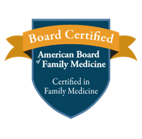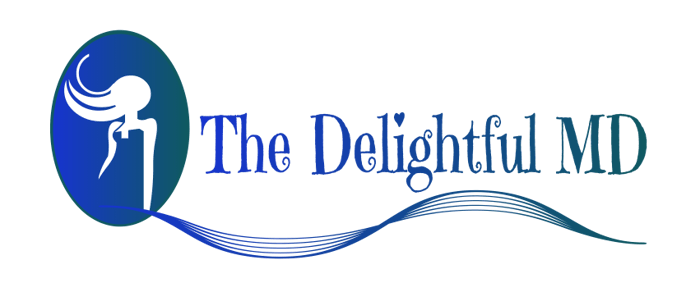The Devaluing of Primary Care
Dr. Kristine Tsai
6/1/20255 min read


I recall vividly in my 4th year of medical school having a career discussion with the Family Medicine faculty at my school, wondering to them: If I chose Family Medicine as my career, would I have robust job prospects in the future?
My advisor lightly laughed a little, saying -- that would not be a concern. She emphasized that the specialty of Family Medicine is much needed and an honorable one.
I graduated from a very academically, research-focused medical school. During my clinical rotations, the highly paid specialists and surgeons consistently devalued Family Medicine as a career, often stating "Why would you go into that? You're smart, you can do anything." I had chosen Family Medicine in my 4th year because of one particular rotation experience - what I valued the most during that rotation was the variety of interesting medical concerns being addressed, the slow, steady and continuous care that this Family Medicine mentor gave to her patients, and the feeling of fulfillment because of the longitudinal relationships built and eventually achieving health goals with patients together. It is also a specialty that is particularly made for one who is a curious learner - who enjoys learning about many different things all the time and enjoys puzzle solving. I didn't understand why "smart" students wouldn't want to pick a career like this.
Still, there was something that continued to bother me in the back of my head as I made the bold decision to go with Family Medicine residencies for my interviews and match. Did I pick something I'm going to regret in the future? How confident am I really? Perhaps I should've chose Internal Medicine so that I can perhaps continue on to specialize in something "really special." Why didn't others feel Family Medicine wasn't "special" enough? I think I ended up compensating for this by making my top match choice one of the more challenging local residency hospitals to get more insight and experience.
Today, almost 15 years after graduating from residency, I still find Primary Care a quiet, humble and fascinating career. It is certainly not flashy, but when patients who have been with me since I first started years ago give me a huge smile when I walk in the room, I know that there is something incredibly special about this specialty. It makes me grateful for my mentors years ago.
These 15 years were not easy however, and I have moved to many different clinics in the local area trying to settle my roots. I've learned a lot over time, and especially about the importance of the autonomy of practice - how having less restrictions to design your own practice and workflows can enhance the primary care experience for both the practicing physician as well as the patients in our care. This is so important in creating value to the practice of Primary Care.
Today, it saddens me that I see many societies and articles speak about how Primary Care is falling apart as a specialty. What do I mean by falling apart? It means, more and more physicians are retiring earlier from their post in the community, and less and less young trainees are willing to pick this career.
Why?
There are so many reasons - but in my opinion as a practicing physician, the #1 reason is mainly primary care is not well-respected nor fairly compensated like the highly paid specialists in the hospitals. These specialists do incredible work and are also very protective of their highly paid and highly respected status. Every time policy makers try to improve Primary Care funding, these powerful specialty societies stop it in its track. Primary Care doesn't ask for much, but when many independent practicing autonomous physicians have to close down their small practice to work for a company or hospital that devalues their care by giving them very little time to develop meaningful relationships with patients and treat our work like a standardized assembly production line, more and more begin to devalue the career themselves, thinking: why bother anymore? This also trickles down to the young souls who we should be mentoring to show them why Primary Care is for the curious, smart minds who believe in the art of continuous learning and healing with time, patience and kindness. They are no longer seeing this - just the burnt-out silhouettes of many who feel like robots in the system who follow a standard algorithm of (and I argue, substandard) care.
I find this is detrimental to a community and derails the ability for a strong Primary Care network to help prevent overutilization of our emergency departments and hospitals. This is a very big reason why healthcare in the USA is so expensive... yet the healthcare system as a whole is not making stellar marks in keeping our country healthy.
The health of a community requires a lot of trust between the healers and the patients. Without Primary Care holding the fort in this area, care will become very fragmented, very complex for patients and very expensive. Healer-patient trust will also continue to erode, because as even super star specialists become busier and more frazzled, there will be less time for everyone to cultivate long-term and trusting relationships for the very people we are here to serve.
Few will be there to help the patients navigate their care in our very complex US medical system.
Few will be there to help patients answer questions about their conditions (and know their patients' stories well) when their super star specialists are too busy doing more procedures because primary care has disappeared.
Few will be there to remind patients day in and out about preventive management to help them stay healthy and disease-free.
Few will be there who are trusted members of their care team to walk them through the emotional rollercoasters of life and help them sail through the storms.
Few will be there to patiently teach about complex medical problems and partner with them in their care.
We will not realize the value of this honorable specialty until it has disappeared into the ether.
I hope that before this happens, good and meaningful change comes soon. I know that my Primary Care colleagues are resilient, but we have been working in an embattled health care system that knows it is unsustainable for Primary Care in the long run.
Many of us stay solely because we love caring for our patients and find value in this still to this day. Respect to all my Primary Care colleagues who have stayed despite the challenges - and I continue to encourage you to find and fight for your autonomy ---
Because Primary Care was never meant to be robotic. It was meant to create meaningful relationships with our patients to help them heal, navigate complex health concerns, educate and give access to high quality preventive, chronic and longitudinal care, to give comfort and kindness during emotional times, and to walk with them through their life. It requires the protection of our time and soul space so that we continue to stay curious and learn about medicine, science and healing as it changes through our career lifetime. It is about the magic of the connections we create while doing something we find incredibly valuable and purposeful in our lives.
Primary Care Expertise
Discovering & inspiring wellness and adventures in individuals and communities, delightfully!
BUSINESS CONTACT
BLOG INSIGHT & REVIEWS
info@delightfulmd.com
P: +1.614.468.3118
© 2025 The Delightful MD. All rights reserved.
Dr. Kristine Tsai practices in the Central Ohio Region. Her current in-office practice does not manage and is not an affiliate of or partnered with The Delightful MD. The information presented on this site is for general education, resources and opinion discussions and is not intended to replace the careful and personalized advice from your own physicians - please ensure continuity of your health care with your dedicated health team and contact them with any medical concerns. Site opinions and content cannot be considered legal advice. Scientific content is ever-changing, and educational pieces are only as current as the date posted on the site content or blog. Clinical questions or concerns will not be addressed by the staff of The Delightful MD.
F: +1.888.366.1236
(HIPAA Compliant Fax)


